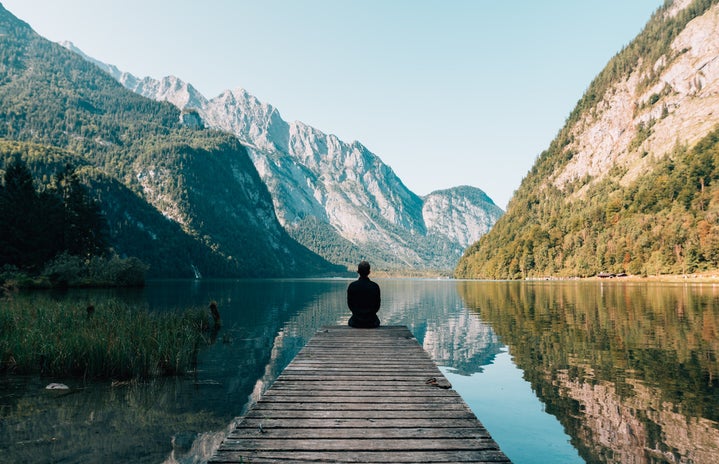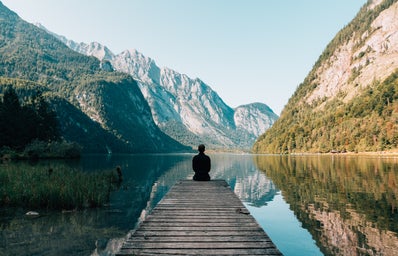About this time last year (November 2020), I was in the midst of the worst depression I have ever experienced. It had been going on since that spring, but it wasn’t going away. I began going to therapy in late September 2020, and I felt like to some degree, it was helping; if nothing else, it wasn’t hurting. But I was so far from okay.
Recently, I’ve been rereading my journal that I started in January of 2021. Even then, I could tell that I was still not doing well. I reread the little blurbs I jotted down in my Notes app from last fall, and it just hurts to read; I don’t relate to who I was a year ago, but I empathize deeply with her. And I wish I could travel back in time and convince her it gets better. But, even if I could, I know that that version of myself probably wouldn’t listen. I couldn’t see any way for things to get better; I couldn’t see any point in trying.
Writing this now, I can proudly say that I’ve been doing better and better every day; and it really has taken a bit over a year to get to this place. I’ve been reflecting quite a bit, looking back at journals and poems, and thinking about what methods and practices have really helped me feel better. I’m not writing this as a checklist for anyone struggling at the moment because everyone is different and what has benefitted me may not be as perfect for someone else. But I think at the core of each of the things that have helped me is my own commitment to trying to feel better.
You can read every self-help book, follow every journal prompt, go to every therapy session you schedule, and meditate over your crystals every day, but if you don’t believe that you have the power to change your situation, nothing will change. What worked for me might not suit your needs, but find something that inspires you to be your own hero.
- Journaling
I began journaling on January 1st, 2021 and held myself accountable to write an entry every morning. I would write how I felt, what I was going to do that day, and recount the previous day’s events. And to be quite honest, I hated it! I was depressed, I didn’t want to do anything, especially not write silly little journal entries in my silly little notebook my mom got me for Christmas.
I hated it, but I did it every day, until eventually I found peace in it. I didn’t write something interesting or even deep every day, half the time, I wrote something along the lines of: “I have class today, I’m making myself work out, and it’s cold and disgusting outside. I’m going to make coffee, though, so there’s that.”
I did my best to write SOMETHING every day, and eventually, it became a habit. And it was the formation of the habit that helped. The entries themselves were pretty shallow for the first month or two of doing this, but I did it almost every day, and just that small amount of routine and structure I created for myself did something to help.
2. Moving my body
I say “moving my body” explicitly instead of saying working out. It started off as taking walks during lockdowns, then turned into following MadFit workouts on YouTube daily, to dancing in my room just so I wouldn’t go crazy, until eventually I found the drive to get myself back into the gym.
I think one of the hardest things for me to appreciate when I was at my lowest point was that I had a healthy, fully functioning body. I had taken on a very nihilistic viewpoint in all aspects of my life, so I felt kind of indifferent to being healthy and being alive in general. I truly took my body for granted for a long time, and in moments I am not at all proud of, I abused it, I spoke harshly to it, and I didn’t listen to anything it was trying to tell me.
Taking long walks, going on hikes, working out, or just stretching have all really helped me get back in touch with myself. I started to respect and love my body more and more, and in doing so started to speak more kindly to myself in all areas of my life. I found myself reminding myself of how strong I am physically, and eventually that began to translate to me reminding myself I am just as strong mentally.
3. Accepting that I am the only thing I can control
I think what really catalyzed the episode of depression I was in for so long was the ~*unprecedented*~ times we began living in in March of last year. Without question, there was plenty brewing under the surface for a long time before then, but what triggered my episode was getting sent home from school and feeling that I had no control over what happened to me.
I’m not here to tell you that I found out I can control my own fate, that I learned how to wield my own internal powers and control the outcome of every facet of my life. On the contrary, I learned that I can’t control how things turn out; I can’t control when things happen or exactly what happens each day. But what I learned is that we can control our reactions to what happens to us.
We can either look at the uncharted waters we’re sailing and decide, “Well, I guess I’m going to capsize,” or we can decide to do our very best to sail through them until the rocky waters subside. Even if everything is going to hell in a handbasket, there are ways to find contentedness, peace, and to some degree, control in our lives.
You cannot control exactly what happens to you, you can’t avoid endings, and you certainly can’t control the domino effects of a global pandemic. But you can control doing things that comfort you, that make you feel human. Reading, writing, singing, going for a walk, organizing your bedroom until everything has its own special place, et cetera, et cetera. There are things you can control that can help you find some sliver of peace when everything else feels like it’s unraveling.


